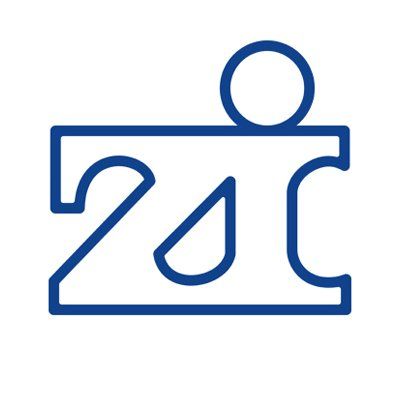预约演示
更新于:2025-09-10
URB-597
更新于:2025-09-10
概要
基本信息
最高研发阶段临床前 |
首次获批日期- |
最高研发阶段(中国)- |
特殊审评- |
登录后查看时间轴
结构/序列
分子式C20H22N2O3 |
InChIKeyROFVXGGUISEHAM-UHFFFAOYSA-N |
CAS号546141-08-6 |
关联
1
项与 URB-597 相关的临床试验NCT00916201
Evaluation of Potential Central Glucoregulatory Compounds to Treat/Ameliorate the Symptoms of Schizophrenia: a Proof-of-concept Study in Healthy Volunteers.
Different compounds that might modify the glucose regulation in the central nervous system will be evaluated in healthy volunteers. Several examinations will be performed in order to get a detailed plan how these substances might work.
开始日期2025-01-31 |
申办/合作机构 |
100 项与 URB-597 相关的临床结果
登录后查看更多信息
100 项与 URB-597 相关的转化医学
登录后查看更多信息
100 项与 URB-597 相关的专利(医药)
登录后查看更多信息
667
项与 URB-597 相关的文献(医药)2025-08-01·AMERICAN JOURNAL OF PHYSIOLOGY-GASTROINTESTINAL AND LIVER PHYSIOLOGY
Lactiplantibacillus plantarum strengthens the intestinal barrier: involvement of the endocannabinoidome
Article
作者: Bégin, Frédéric ; Di Marzo, Vincenzo ; Allam-Ndoul, Bénédicte ; Tinoco Mar, Briscia Anaid ; Flamand, Nicolas ; Mayer, Thomas ; Veilleux, Alain ; Roy, Denis ; Dumais, Elizabeth ; St-Arnaud, Gabrielle ; Raymond, Frederic ; Desjardins, Yves ; Pulido-Mateos, Elena Cristina
Lactiplantibacillus plantarum strains improve transepithelial permeability and concomitantly increase the levels of eCBome mediators in murine small intestine epithelial organoids. Pharmacological elevation of NAE or 2-MAG levels enhances the expression of intestinal epithelial barrier genes and reduces the transepithelial permeability of murine small intestine epithelial organoids, suggesting that L. plantarum may exploit eCBome signaling to exert its beneficial effects.
2025-08-01·FEBS Journal
The endocannabinoid system offers a target for Alzheimer's disease treatment through inhibition of fatty acid amide hydrolase (FAAH )
Review
作者: de Ceballos, Maria L.
Oddi et al. report the effects of chronic treatment via intranasal delivery with URB597, a fatty acid amide hydrolase (FAAH) inhibitor, on an Alzheimer's disease (AD) transgenic mouse model. They found that prolonged treatment with URB597 reduced the learning and memory deficits of these mice. Mechanistically, the inhibitor modified several genes related to amyloidosis and inflammatory responses or anandamide signaling. FAAH inhibition induced a decrease in the accumulation, synthesis, and release of β‐Amyloid, along with diminished expression of β‐site amyloid precursor protein‐cleaving enzyme 1 (BACE1), and this change may be associated with epigenetic changes induced by the drug. In summary, prolonged treatment with URB597 impinges on different aspects of AD pathophysiology, suggesting its therapeutic relevance in treating AD.
2025-08-01·FEBS Journal
Fatty‐acid amide hydrolase inhibition mitigates Alzheimer's disease progression in mouse models of amyloidosis
Article
作者: Tortolani, Daniel ; Bilkei‐Gorzo, Andras ; Leuti, Alessandro ; Maccarrone, Mauro ; Zimmer, Andreas ; Coccurello, Roberto ; Scipioni, Lucia ; Oddi, Sergio ; Totaro, Antonio ; Giacovazzo, Giacomo ; Businaro, Rita ; Armeli, Federica ; Ciaramellano, Francesca
The endocannabinoid N‐arachidonoylethanolamine (AEA) is a pro‐homeostatic bioactive lipid known for its anti‐inflammatory, anti‐oxidative, immunomodulatory, and neuroprotective properties, which may contrast/mitigate Alzheimer's disease (AD) pathology. This study explores the therapeutic potential of targeting fatty acid amide hydrolase (FAAH), the major enzyme degrading AEA, in mouse models of amyloidosis (APP/PS1 and Tg2576). Enhancing AEA signaling by genetic deletion of FAAH delayed cognitive deficits in APP/PS1 mice and improved cognitive symptoms in 12‐month‐old AD‐like mice. Chronic pharmacological FAAH inhibition fully reverted neurocognitive decline, attenuated neuroinflammation, and promoted neuroprotective mechanisms in Tg2576 mice. Additionally, pharmacological FAAH inhibition robustly suppressed β‐amyloid production and accumulation, associated with decreased expression of β‐site amyloid precursor protein cleaving enzyme 1 (BACE1), possibly through a cannabinoid receptor 1‐dependent epigenetic mechanism. These findings improve our understanding of AEA signaling in AD pathogenesis and provide proof of concept that selective targeting of FAAH activity could be a promising therapeutic strategy against AD.
2
项与 URB-597 相关的新闻(医药)2024-09-13
·精准药物
芳香环广泛存在于天然产物与生物活性化合物中,具有的限制分子构象,通过非共价相互作用增强对受体结合能力,通过交叉偶联反应构建丰富化合物库的特点。但同时富含π电子的芳环易氧化,严重降低代谢稳定性。此外,与C( sp3 )分子相比,芳香族分子的水溶性降低,log D增加 (导致脱靶概率增加),阻碍了药物研发。基于 C( sp3 ) 的双环烃骨架作为芳香环的等排体,可以作为芳环的替代品。经过适当设计,这些分子骨架可以保留苯环的构象限制和生物活性,并增强生物物理性质。这种等排体取代方法具有两个重要特点。第一是保留现代催化交叉偶联方法所伴随的高效、可靠、模块化和可扩展的合成技术。第二是给予配体立体化学性质。由于大多数生物相关受体是手性的,非对称电子等排体的可能通过锁钥原理增强与其同源受体的结合。如MK-5108 与有丝分裂激酶 Aurora A 的非活性 DFG-out 状态结合时,如果它在受体上部区域占据的体积比下部区域更大,则预计结合效果更好。此外已证实随着化合物中手性中心数量的增加,配体混杂性会降低。
目前缺乏从易得前体合成这种等排体的简单、可扩展以及催化对映选择性好的方法。来自美国波士顿大学的研究人员通过合成化学与计算技术交叉研究,描述了一种反应,它保留了当代交叉偶联的优势,并允许将简单的起始材料转化为对映体富集的3,5-二取代三环庚烷骨架,具有与间位二取代苯环相似的空间构象。该反应在低负载的手性钯配合物下发生,并产生可塑的含硼电子等排体,具有进一步改性的巨大潜力。
双环庚二烯1在添加合适的亲电试剂后很容易转化为三环庚烷骨架2。双环有机金属化合物3的类似亲电活化可以导致闭环 C-C 键形成,从而转化为三环庚烷骨架。在此基础上,他们证明将合成2和4中的汞盐替换为钯配合物并与有机亲电试剂结合时,可以进行三环庚烷的催化合成,同时亲电试剂被添加到骨架中。
在催化量的 Pd(OAc) 2和手性配体L1存在下,二硼底物5和有机亲电试剂参与催化对映选择性环合生成三环庚烷,具有高产率和对映选择性。缺电子和富电子亲电试剂都可以轻松获得产物,并可以扩展到杂环和非芳香族亲电试剂,未保护的苯胺和苯酚也不会干扰反应。化合物5可以直接由廉价的市售降双环庚二烯和B2(pin)2以多克规模制备。5的反应可以在5 mmol的规模上进行,仅需0.5 mol%的钯配合物,经过24小时的反应就可以以良好的产率完成。产物7中的硼酸酯可以通过交叉偶联进行烯丙基化、羧化、胺化和转化为衍生醇等,便于构建丰富的间位二取代苯等排体化合物库。
接下来他们对反应的机理进行了研究,密度泛函理论计算用于确定GS0的反应路径的自由能曲线。在路径A中,TS1a的carbopalladation产生中间体GS1a,接下来有机硼作为亲核试剂同时排出和还原金属。在路径B中,TS1b通过nucleopalladation生成GS1b,然后直接进行还原消除得到产物。计算表明,carbopalladation的能量较低,烯烃迁移插入生成GS1a所需的能垒比nucleopalladation低得多 (0.7 kcal mol−1对18.7 kcal mol−1)。计算TS1a产生的13C动力学同位素效应 (KIE) 与通过 Singleton 方法实验确定的结果非常吻合。最值得注意的是5在C2处表现出可忽略不计的 KIE,这与carbopalladation机理一致。此外进行了计算研究以阐明对映体诱导的起源。计算出的导致次要产物立体异构体的过渡态结构将 CH 2双环庚烷结构单元的桥直接位于空间受阻的蒽环体系之下,而主要异构体的过渡态构象避免了这种相互作用。
为了确定三环庚烷骨架是否适合用于生物活性分子,研究人员将33的两种对映体制备为脂肪酸酰胺水解酶(FAAH)抑制剂URB597的手性等排类似物,并进行分析。等排类似物具有与URB597相似的分子量,在水缓冲液中的溶解度增加10倍,同时保持了相当的亲脂性。此外,通过小鼠肝微粒体测定发现等排类似物相对URB597表现出明显增加的代谢稳定性。研究人员还通过定量基于活性的蛋白质分析实验比较了化合物 (R,S)-33和(S,R)-33。用不同浓度的每种化合物处理小鼠脑匀浆。标记的蛋白质在链霉亲和素珠上富集,并通过基于定量串联质谱标记的质谱法进行分析。等排类似物的效力不如URB597,但保留了抑制FAAH的能力。此外,电子等排体的加入不会改变URB597的蛋白质组范围选择性,这两种电子等排体对FAAH都保持了比其他23种检测到的丝氨酸水解酶更高的选择性。
在第二个比较分析中,对映体三环烷(S,R)-34和(R,S)-34被制备为Hedgehog通路抑制剂sonidegib的类似物。等排体的溶解度具有较大的提升,尽管其代谢稳定性有所下降。他们使用双荧光素酶测定法在Shh-LIGHT2细胞中通过三次独立的 IC50测定对立体异构体等排体进行了比较,发现对映体 sonidegib 类似物以亚微摩尔效力抑制信号传导。
总的来说,该研究提供了一种合成代替间位二取代苯的非芳香等排体的不对称催化反应。该反应在钯催化下将二环庚二烯转化为一种含有手性硼酸脂的三环庚烷,并且可以进一步利用硼基团发生交叉偶联生成更加丰富的化合物。反应路线简单廉价,具有很好的对映异构选择性和产率,也能够适应于多种类型的基团,同时具有改善物化性质的潜力,为药物开发提供新的策略。
参考文献
1. Zhang, M., Chapman, M., Sarode, B.R. et al. Catalytic asymmetric synthesis of meta benzene isosteres. Nature (2024).
2. Wiesenfeldt, M.P., Rossi-Ashton, J.A., Perry, I.B. et al. General access to cubanes as benzene bioisosteres. Nature 618, 513–518 (2023).
声明:发表/转载本文仅仅是出于传播信息的需要,并不意味着代表本公众号观点或证实其内容的真实性。据此内容作出的任何判断,后果自负。若有侵权,告知必删!
长按关注本公众号
粉丝群/投稿/授权/广告等
请联系公众号助手
觉得本文好看,请点这里↓
诊断试剂上市批准
2023-12-23
近日(12月21日),爵士制药(Jazz Pharmaceuticals)宣布了该公司的PTSD(创伤后应激障碍)药物JZP150的II期临床数据,该实验未达所有主要终点和次要终点,这也宣告了这项曾被两度转手的产品最终停止了在PTSD这一唯一适应症的开发。从药品本身来看,JZP150(又名PF-04457845)是一款脂肪酸酰胺水解酶(FAAH)抑制剂,用于潜在治疗PTSD及相关症状。这款产品最初由辉瑞开发,后来又在2017年被辉瑞许可给了SpringWorks Therapeutics,而爵士制药最终又在2020年向SpringWorks购得该产品的独家全球权利。那么FAAH抑制剂本身靠谱吗?还确实有点不靠谱。爵士制药是一家大麻素科学相关的制药企业,许多产品和管线都与大麻素相关,而此次FAAH抑制剂的作用机理确实和大麻素相关。一例FAAH抑制剂致人脑死亡脂肪酸酰胺水解酶是一种完整的膜酶,它可以水解脂质递质的脂肪酰胺家族,包括研究最彻底的内源性大麻素,但也有很多其他受体也参与这一路径如PPARs,TRPV1,GPR55。从机制上来看,FAAH抑制剂/灭活剂能够增加内源性大麻素的浓度。而内源性大麻素是膜磷脂前体按需释放的脂质介质。内源性大麻素的增加相对于外源性激动剂来说会减少大麻素样的副作用。而从FAAH抑制剂的普遍性疗效来看,其实相对于那些外源性大麻素的效果还是相当不错的。在对于那些FAAH抑制剂,如JZP150(PF-04457845)、JNJ-42165279、SSR-411298、V-158866和URB597,来说,虽然长期结果尚且未知,但普遍观察结果是FAAH抑制剂并没有明显诱发通常与外源性大麻素相关的副作用,如认知障碍、运动协调和精神病。已完成的临床试验的可用数据还表明,FAAH抑制剂耐受性良好。JZP150(当时还是辉瑞在推动临床)的一项I期研究表明,与安慰剂相比,嗜睡的增加只是轻微的,对认知功能没有影响。相应的II期研究表明,该药物的安全性与安慰剂没有区别,其主要治疗相关副作用为头晕。但就在大家都以为副作用似乎不是很严重的时候,法国Biotrial Pharmacology Center开发的同类竞品BIA 10-2474在一项临床研究中出现了一例严重不良事件(SAE),一位志愿者之前服用较低剂量(20 mg)时未报告SAE。最严重的症状具有中枢神经系统特征的,可之后却出现迅速导致脑死亡的单一昏迷病例相关的症状。在其他5名住院参与者中,2名有严重的神经损伤(几天内临床症状明显改善)。由于这些事件,BIA 10-2474的临床立即终止。在Biotrial事故宣布后,作为预防措施,JNJ-42165279的两个试验也被暂停。辉瑞也在临床没什么成效(当时开发的是骨关节镇痛)后转手了给了SpringWorks。不明来源的发病机制法国国家药品和保健品安全局(ANSM)后续对于BIA 10-2474的报告还揭露了一些令人不安的事实:他们的简报提到了与大脑功能严格相关的症状,核磁共振成像观察显示存在“不同严重程度的微脑组织损伤和不同寻常的扫描断层”,而且这种损伤似乎还是因人而异的,有着“突然就出现”的特征。但是这种现象为什么会出现?这个问题并没有答案,也没人愿意或者再敢去回答,有些人认为可能是由与其他药理学靶点的相互作用引起的,或者是仅在超过特定浓度阈值时才变得重要,还有些人认为因为阻断了FAAH触发了人体内未知的替代补偿途径,但是也不知道人体内到底有什么触发的替代补偿途径。ANSM至少排除了制造相关问题,在临床前研究似乎也没什么问题,FAAH缺陷型小鼠(基因敲除)生长健壮,没有表现出异常行为症状,这支持了BIA 10-2474本身或其代谢产物而不是FAAH的抑制是不良反应原因的假设。总结很显然,因为人体机制可能存在的未接明机制使得HAAP复杂化,也没有太多人愿意冒着生命风险试探不可预知的风险,因此JZP150这一类的FAAH抑制剂的开发未来可能仍然存在许多问题,还需要很多基础研究。参考来源:Mallet C, Dubray C, Dualé C. FAAH inhibitors in the limelight, but regrettably. Int J Clin Pharmacol Ther. 2016 Jul;54(7):498-501. doi: 10.5414/CP202687. PMID: 27191771; PMCID: PMC4941643.https://investor.jazzpharma.com/news-releases/news-release-details/jazz-pharmaceuticals-provides-update-phase-2-trial
临床2期临床1期临床终止
100 项与 URB-597 相关的药物交易
登录后查看更多信息
外链
| KEGG | Wiki | ATC | Drug Bank |
|---|---|---|---|
| - | URB-597 | - | - |
研发状态
10 条进展最快的记录, 后查看更多信息
登录
| 适应症 | 最高研发状态 | 国家/地区 | 公司 | 日期 |
|---|---|---|---|---|
| 精神分裂症 | 临床1期 | 德国 | 2025-01-31 | |
| 自闭症谱系障碍 | 临床前 | 美国 | 2025-04-01 | |
| 社交恐怖症 | 临床前 | 加拿大 | 2024-07-16 | |
| 创伤后应激障碍 | 临床前 | 加拿大 | 2024-07-16 |
登录后查看更多信息
临床结果
临床结果
适应症
分期
评价
查看全部结果
| 研究 | 分期 | 人群特征 | 评价人数 | 分组 | 结果 | 评价 | 发布日期 |
|---|
No Data | |||||||
登录后查看更多信息
转化医学
使用我们的转化医学数据加速您的研究。
登录
或

药物交易
使用我们的药物交易数据加速您的研究。
登录
或

核心专利
使用我们的核心专利数据促进您的研究。
登录
或

临床分析
紧跟全球注册中心的最新临床试验。
登录
或

批准
利用最新的监管批准信息加速您的研究。
登录
或

特殊审评
只需点击几下即可了解关键药物信息。
登录
或

生物医药百科问答
全新生物医药AI Agent 覆盖科研全链路,让突破性发现快人一步
立即开始免费试用!
智慧芽新药情报库是智慧芽专为生命科学人士构建的基于AI的创新药情报平台,助您全方位提升您的研发与决策效率。
立即开始数据试用!
智慧芽新药库数据也通过智慧芽数据服务平台,以API或者数据包形式对外开放,助您更加充分利用智慧芽新药情报信息。
生物序列数据库
生物药研发创新
免费使用
化学结构数据库
小分子化药研发创新
免费使用

